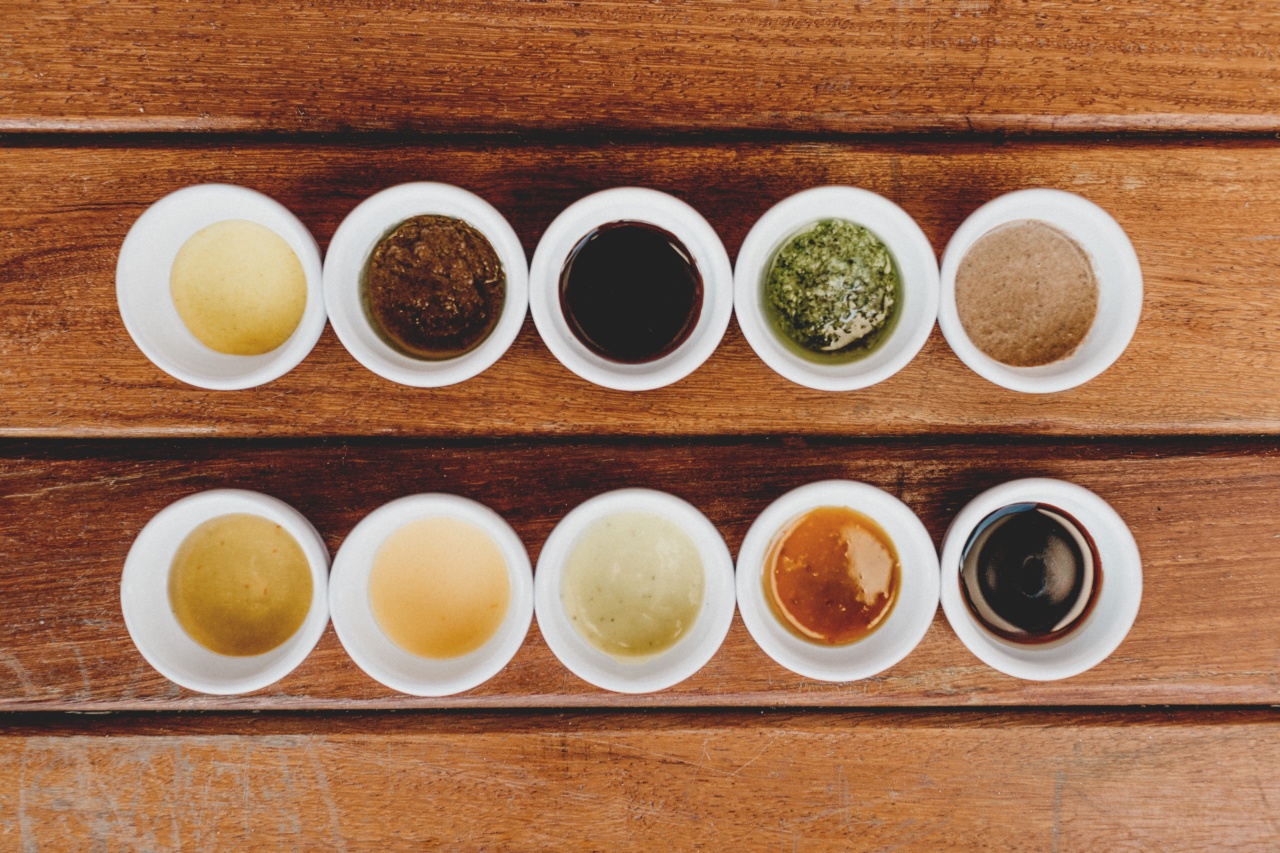Endometriosis is a chronic condition that affects millions of women worldwide. It occurs when the tissue that normally lines the uterus grows outside of it, leading to pain and fertility issues.
While there is no known cure for endometriosis, certain dietary choices can help manage the symptoms and reduce inflammation. In this article, we will explore the food choices that women with endometriosis should avoid in order to alleviate their symptoms.
The Role of Diet in Endometriosis
Research suggests that diet can play a significant role in endometriosis symptoms. Certain foods can either exacerbate or alleviate inflammation, hormonal imbalances, and pelvic pain associated with this condition.
By making conscious food choices, women with endometriosis can potentially improve their quality of life. Let’s delve into the specific food groups that should be avoided.
1. High-Fat and Processed Meats
High-fat and processed meats can be detrimental for women with endometriosis. They often contain high levels of saturated fats, which can increase the production of hormones that promote inflammation.
Avoid bacon, sausage, hot dogs, and other processed meats. Instead, opt for lean proteins such as fish, chicken, and plant-based alternatives like tofu or legumes.
2. Dairy Products
Dairy products, including milk, cheese, and butter, may worsen endometriosis symptoms for some women. Dairy contains arachidonic acid, which can trigger inflammation.
Additionally, dairy products often contain traces of hormones from cows, which may affect hormonal balance in the body. If you experience increased pain or discomfort after consuming dairy, consider switching to non-dairy alternatives like almond milk, coconut milk, or soy-based products.
3. Gluten
Gluten, a protein found in wheat, barley, and rye, is known to cause inflammation in some individuals. This inflammation can aggravate endometriosis symptoms.
Explore gluten-free alternatives such as quinoa, rice, buckwheat, and gluten-free oats to reduce inflammation and support a well-rounded diet.
4. High-Glycemic Index Foods
Foods with a high glycemic index (GI) can cause a rapid spike in blood sugar levels, leading to increased inflammation and hormonal imbalances. Examples of high-GI foods include white bread, white rice, sugary snacks, and processed cereals.
Opt for whole grains, fruits, and vegetables that have a lower GI and provide sustained energy release.
5. Alcohol and Caffeine
Both alcohol and caffeine can worsen endometriosis symptoms due to their impact on hormone levels and inflammation. Alcohol can disrupt hormonal balance, while caffeine can cause vasoconstriction and worsen pelvic pain.
It is advisable to limit or eliminate alcohol and caffeine intake to help manage endometriosis symptoms effectively.
6. Soy Products
Soy products contain isoflavones, which are natural compounds with estrogen-like effects.
While some women may benefit from consuming soy due to its potential hormonal regulation properties, others may experience increased inflammation and endometriosis symptoms. It is essential to monitor your body’s response and consult with a healthcare professional to determine if consuming soy is right for you.
7. Refined Sugar
Refined sugars found in candies, sweets, and sugary beverages can trigger inflammation and exacerbate hormonal imbalances. These substances can also lead to unwanted weight gain, which may worsen endometriosis symptoms.
Opt for natural sweeteners such as honey, maple syrup, or stevia in moderation, or satisfy your sweet tooth with fresh fruits.
8. Artificial Additives and Preservatives
Artificial additives and preservatives found in processed foods, sodas, and snacks can cause inflammation and disrupt hormonal balance. Avoid foods with long lists of unrecognizable ingredients and opt for fresh, whole foods whenever possible.
Cooking meals from scratch allows you to ensure the use of natural and wholesome ingredients.
9. High-Sodium Foods
High-sodium foods, such as processed meats, canned soups, and salty snacks, can contribute to water retention and bloating. These symptoms may already be heightened for women with endometriosis, so it is advisable to reduce sodium intake.
Opt for fresh herbs, spices, and homemade meals to add flavor without excessive sodium.
10. Non-Organic Foods
Non-organic foods often contain traces of pesticides, which can disrupt hormonal balance and contribute to inflammation. Whenever possible, choose organic fruits, vegetables, and meats to minimize exposure to potentially harmful chemicals.
If organic options are not readily available, be sure to thoroughly wash and peel non-organic produce before consumption.
Conclusion
While there is no one-size-fits-all diet for endometriosis, making informed food choices can significantly impact symptom management and overall well-being.
By avoiding high-fat and processed meats, dairy products, gluten, high-glycemic index foods, alcohol, caffeine, soy products, refined sugar, artificial additives and preservatives, high-sodium foods, and opting for organic choices whenever possible, women with endometriosis can take proactive steps towards managing their symptoms and improving their quality of life.































